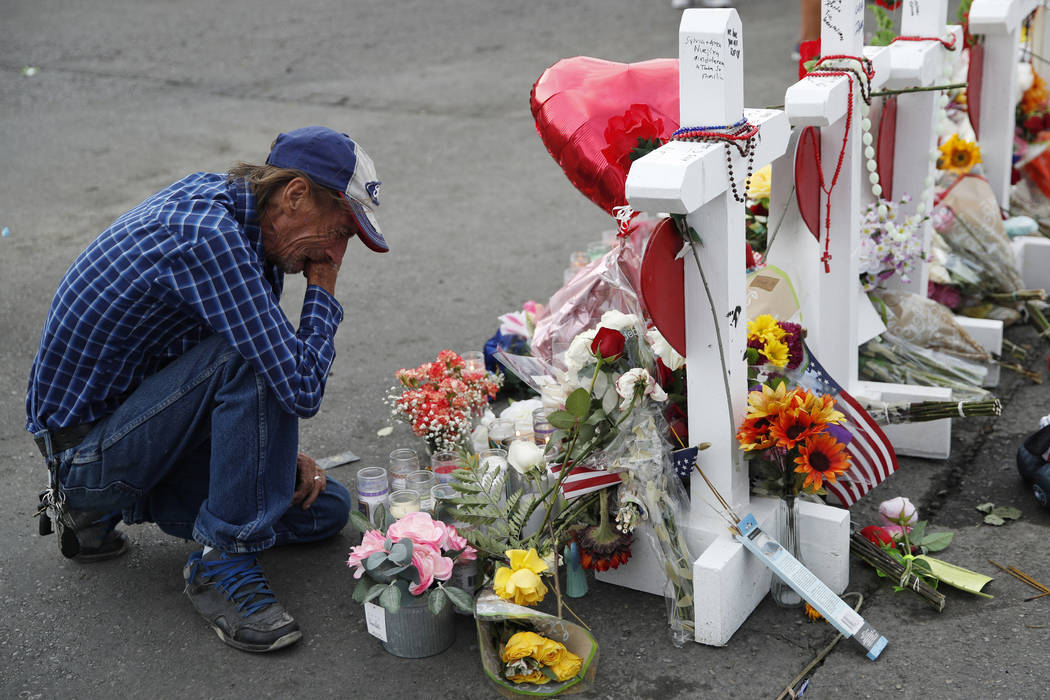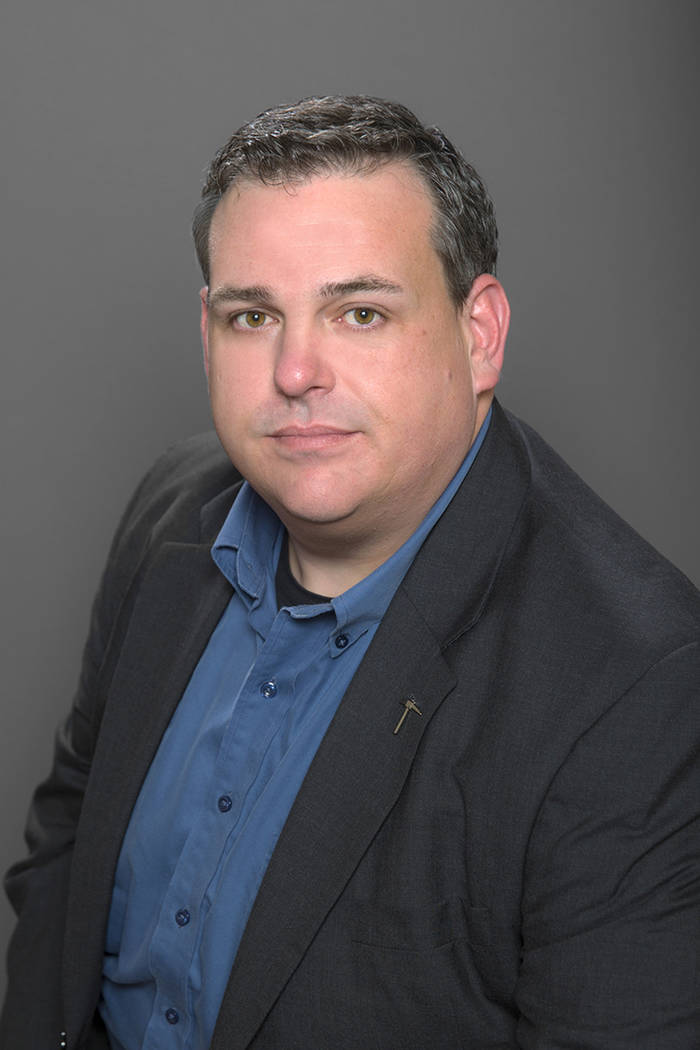El Paso lecture at UNLV has different context after shootings
UNLV kicks off its University Forum lecture series next week with a talk about immigration in El Paso, Texas.
Todd Curry, an associate professor of political science at the University of Texas, El Paso, will present “A View from El Paso: The Immigration Crisis in Context” Sept. 17. The lecture is free and open to the public.
Curry became involved in December 2018 with coordinating medical care for asylum seekers in El Paso. Those efforts continue through the El Paso Refugee Healthcare Provider Coalition.
El Paso — a U.S.-Mexico border city with more than 680,000 residents — has been the focus of national attention recently in the context of immigration and following a mass shooting.
In August, 22 people were killed and about a dozen injured after a gunman opened fire at a Walmart in El Paso.
Police said suspected gunman Patrick Crusius confessed to targeting Mexicans, the Associated Press reported in August. They’ve also said the suspected shooter is the likely author of an anti-Latino screed published online shortly before the shooting. It criticized race-mixing and called Hispanics “invaders.”
As for the UNLV lecture series, Curry was invited to participate and it has been on his calendar for about six months.
“Obviously, the context and reality in El Paso has changed pretty drastically in those six months,” Curry said in a phone interview Sept. 4 with the Las Vegas Review-Journal.
Curry said his lecture will look different than he initially planned “because I think it has to.”
Curry said he isn’t an immigration researcher but described himself as “someone who got involved at a personal level” and who has expertise more broadly in the field of law.
Curry, who has lived in El Paso for seven years, said the community has been helping asylum seekers for decades.
“A lot of institutions had already been in place,” he said.
What’s new, Curry said, is an increase in the number of asylum seekers — particularly, families rather than single adult men — and the national attention El Paso is receiving. “What that means for El Paso is what we’re struggling with.”
During the UNLV lecture, Curry plans to talk about what day-to-day work with asylum seekers over the last year in El Paso looks like. He’ll also talk about practices of immigration courts and the constitutionality of the United States’ “Remain in Mexico” policy — known officially as Migrant Protection Protocols — that took effect in January.
Curry plans to wrap up the lecture with “a discussion on the danger of rhetoric,” he said, particularly “the national-born rhetoric we’ve seen, compared to the actual realities seen on the ground in El Paso.”
In addition to his position as associate professor of political science at the University of Texas, El Paso, Curry is a research fellow at the university’s Patti and Paul Yetter Center for Law.
Rebecca Gill, an associate professor of political science at UNLV, is coordinating the lecture and invited Curry — who’s a friend — to speak. Curry is a political scientist who studies issues of law and judicial behavior, Gill said, noting it’s similar to her own work.
“We really wanted something that was timely,” she said about finding a speaker, adding she expects the audience will learn a lot from Curry. “I also hope they come away with sort of a different understanding of the evolving role of academics in public life.”
Curry is an example of a scholar-activist, Gill said.
The University Forum series is organized through UNLV’s College of Liberal Arts.
“It’s a really neat series that is specifically intended to provide these public-facing lectures and provide an opportunity to engage the public in the work that’s being done in academia,” Gill said.
Coordinating medical care in El Paso
U.S. Customs and Border Protection and Immigration and Customs Enforcement released hundreds of asylum seekers over Christmas weekend last year in downtown El Paso without notice.
That was a significant policy change, Curry said.
Typically, CBP and ICE released asylum seekers to the nonprofit Annunciation House, which helped provide for their needs, he said.
Curry, whose wife is a nurse, spent a month over his 2018 winter break working through the Annunciation House to organize a medical response to address asylum seekers’ medical needs.
Curry arranged medical coverage for a few of Annunciation House’s hospitality centers. He also raised about $8,000 — the vast majority of which he donated to the nonprofit after buying medical supplies.
Curry found out a group of physicians from Texas Tech University Health Sciences Center El Paso was doing the same thing he was, but for different hospitality centers.
They merged their efforts last winter and formed the El Paso Refugee Healthcare Provider Coalition to provide care for all of the 20-some hospitality centers, Curry said. At minimum, there were on-call doctors for each site.
Now, Annunciation House has a volunteer coordinator who handles the medical outreach, Curry said.
Most of Annunciation House’s hospitality centers are now closed due to a recent drop in migrant numbers, but at least one is still open, according to an Aug. 6 post on the nonprofit’s website.
The Associated Press contributed to this report.
Contact Julie Wootton-Greener at jgreener@reviewjournal.com or 702-387-2921. Follow @julieswootton on Twitter.
If you go
When: 7:30-9 p.m. Sept. 17
Where: Marjorie Barrick Museum of Art/Harry Reid Center at UNLV, 4505 S. Maryland Parkway
Admission: Free
More information about upcoming lectures: unlv.edu/liberalarts/events
























